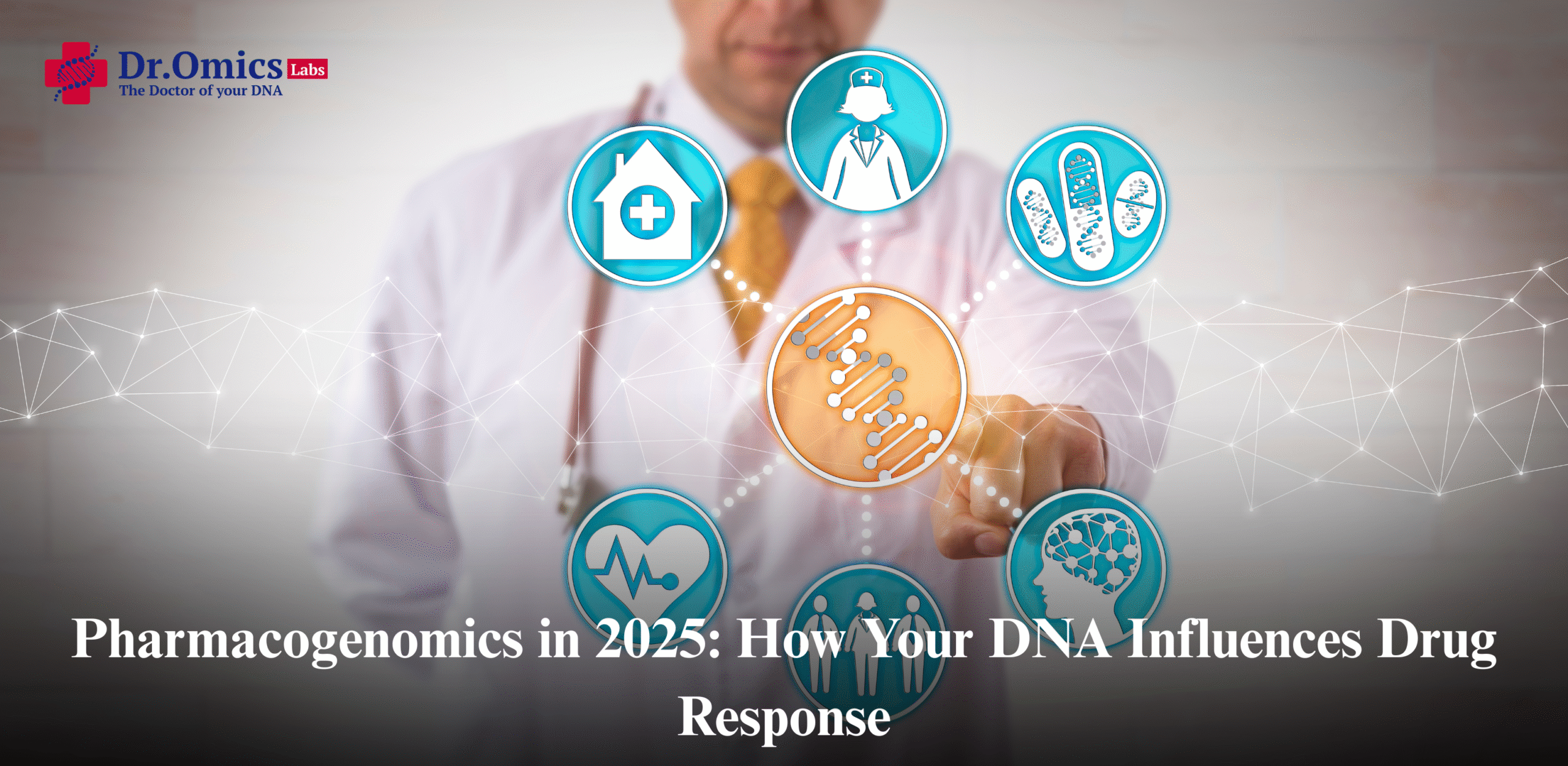Introduction
Imagine taking a medication and knowing with confidence that it will work for you—with minimal side effects. Thanks to advances in pharmacogenomics, that vision is becoming a reality in 2024. As part of the broader field of personalized medicine, pharmacogenomics uses your unique genetic profile to guide drug selection and dosage, transforming how healthcare is delivered.
This article explores how DNA drug testing, also known as PGx testing, is revolutionizing modern medicine by uncovering drug-gene interactions that impact treatment outcomes.
What Is Pharmacogenomics?
Pharmacogenomics is the study of how your genes affect your response to medications. Variations in specific genes can influence how quickly you metabolize a drug, how well it works for you, or whether you’re likely to experience side effects. By analyzing your genetic code, doctors can predict your body’s reaction to dozens of commonly prescribed drugs.
This process—also known as genetic testing for medications—helps personalize treatment plans, reduce trial-and-error prescriptions, and increase patient safety.
Why Pharmacogenomics Matters in 2024
Healthcare in 2024 is becoming more data-driven and patient-specific. Instead of the traditional “one-size-fits-all” approach, personalized medicine is taking center stage. With PGx testing, patients now have the opportunity to:
- Avoid medications that may cause adverse reactions
- Receive the right drug at the right dose, the first time
- Save time and money by reducing ineffective prescriptions
- Improve treatment outcomes for mental health, cancer, heart disease, pain management, and more
DNA Drug Testing: What Does It Involve?
A DNA drug test is simple, non-invasive, and typically involves a cheek swab or saliva sample. Once analyzed, the results reveal how your genes affect the processing of different medications.
Some of the most studied genes include:
- CYP2D6 – affects how you metabolize antidepressants, opioids, and beta-blockers
- CYP2C19 – plays a role in processing antiplatelet drugs and certain psychiatric medications
- SLCO1B1 – linked to statin-induced muscle pain
- TPMT – crucial for metabolizing drugs used in leukemia and autoimmune diseases
Understanding these drug-gene interactions enables physicians to prescribe medications that are safer and more effective for each individual.
Who Can Benefit from PGx Testing?
While pharmacogenomics is beneficial for anyone taking medications, it’s especially useful for:
- Individuals on multiple medications (polypharmacy)
- Patients starting new treatments for depression, anxiety, or chronic pain
- People with a history of side effects or poor response to certain drugs
- Older adults or children with specific dosing needs
- Cancer patients receiving targeted therapies
In short, PGx testing can guide medication decisions across nearly every medical specialty.
The Future of Genetic Testing for Medications
In 2024, pharmacogenomic testing is no longer reserved for elite medical centers. It’s now widely available through hospitals, clinics, and even at-home testing services. Increasingly, insurance providers are recognizing its value and covering the cost, making it more accessible to patients worldwide.
The integration of pharmacogenomics into electronic health records (EHRs) is another key development. This allows doctors to access your DNA-based drug compatibility instantly when writing a prescription, creating a seamless and proactive healthcare experience.
Conclusion: Personalized Medicine Starts with Your Genes
The age of personalized medicine is here—and your DNA is the key. Pharmacogenomics empowers individuals and healthcare providers to make smarter, safer medication decisions by understanding drug-gene interactions. Whether you’re managing a chronic illness or starting a new treatment, DNA drug testing ensures your therapy is built just for you.
In 2024 and beyond, don’t settle for guesswork in your treatment. Choose PGx testing and take control of your health, one gene at a time.
Discover your genetic blueprint for medications—and let your DNA guide your path to better health.




